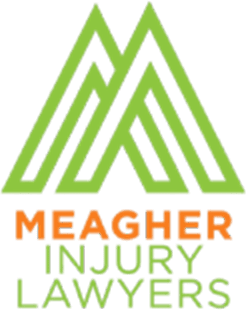An accident can leave a person permanently disabled and unable to work. On top of that, accident victim faces the potential for a lifetime of medical care, which they now cannot afford. This often forces victims to seek public assistance from programs such as Medicaid.
The complicating factor with Medicaid is that all states, including Kentucky, impose strict income and asset limits on beneficiaries. For instance, under current Kentucky Medicaid rules, disabled adult cannot earn more than $217 per month in income and own more than $2,000 in “countable” assets to maintain their benefits. These limits continue in effect as long as the disabled adult requires Medicaid assistance.
Personal Injury Settlements Are “Countable Assets”
When an accident was the result of third-party negligence, the victim has the right to seek compensation by filing a personal injury lawsuit. In most cases, a personal injury claim is settled out of court, usually with an insurance company paying for the victim’s damages. But this raises the question: Are the proceeds from a personal injury settlement considered “countable assets” for purposes of Medicaid eligibility?
The short answer is “yes.” While Medicaid regulations do exempt several different kinds of assets from the eligibility limit, third-party personal injury settlements are not among them. This means that Kentucky Medicaid officials must count any unstructured, lump-sum settlement received by a disabled accident victim against them for Medicaid purposes. Moreover, Medicaid has the right to take a portion of any personal injury settlement to cover any medical expenses already paid on behalf of the disabled victim.
How a Kentucky Special Needs Trust Can Help
But there is a legal option to help disabled adults in this situation keep their Medicaid eligibility while still not losing out on the benefits of a personal injury settlement. That option is known as a special needs trust, specifically creating something known as a first-party special needs trust.
A first-party trust is one funded by the assets of the person who also benefits from the trust—in this scenario, a disabled adult who is seeking or currently receiving Medicaid benefits. Instead of paying a personal injury settlement directly to the disabled adult, the money is instead given over to a separate trustee. The trustee can use the trust assets to supplement Medicaid and other needs-based government assistance programs without jeopardizing the disabled adult’s eligibility.
This is perfectly legal. As far as Medicaid is concerned, the assets in the special needs trust are not “countable assets” against the $2,000 eligibility limit. And the disabled adult benefit because the trust’s funds can be spent for their benefit without being diverted to Medicaid. Some examples of how the trustee can spend special needs trust funds include:
- Paying for medical and dental expenses not covered by Medicaid.
- Paying for educational and special tutoring.
- Modifying the adult’s home to make it more accessible.
- Covering entertainment and travel costs.
Contact Meagher Injury Lawyers Today
Medicaid eligibility is just one of the many complex legal problems you may face if you have been recently injured in a serious accident. That is why you should work with an experienced Louisville personal injury lawyer who can guide you through each stage of the legal process. Contact Meagher Injury Lawyers today to schedule an initial consultation.







